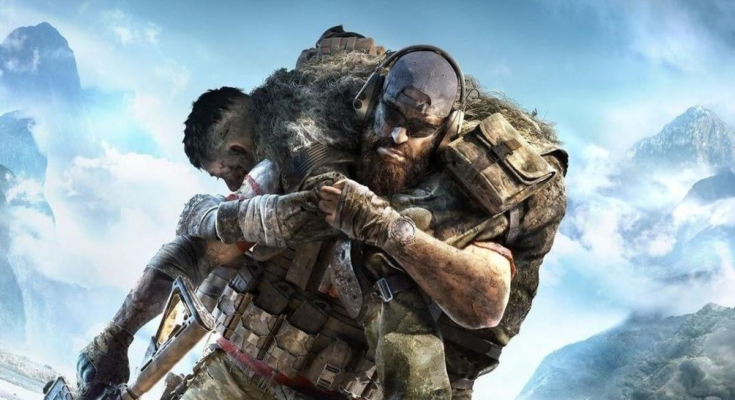
Ubisoft CEO Yves Guillemot held a video Q&A this week to try and reassure developers about the company’s controversial new push behind NFTs, according to multiple sources who were in attendance. But they said his answers were vague and leaned on buzzwords like “metaverse” and “web 3.0,” leaving some as disheartened by the company’s latest PR disaster as before.
The meeting, which sources said wasn’t yet scheduled when the week started, came after the official reveal of Ubisoft’s new blockchain-based technology called Quartz was widely mocked online, with a video showcasing it receiving over 40,000 downvotes on YouTube. Kotaku previously reported that developers at the company were critical of the rollout as well, with an internal announcement exploding in hundreds of comments that ranged from skeptical to dismissive.
The initiative kicked off with three cosmetic NFTs in Ghost Recon Breakpoint, including one that required players to have logged over 600 hours in-game to redeem. Axios reported earlier this week that players have already started at least trying to resell the tokens on third-party platforms, for amounts that wishfully range from hundreds of dollars to the hundreds of thousands.
Inside the Ubisoft Paris studio, which makes Breakpoint, some developers are worried about a game they spent years rehabilitating after a disastrous 2019 launch having its reputation dragged back through the mud just so the company can stake its claim on the latest speculative tech fad. Indeed, according to a recent Ubisoft community report reviewed by Kotaku, the announcement of Quartz led to an unprecedented negative swing in player sentiment about the live-service open-world shooter.
And so earlier this week Guillemot parachuted into a Q&A with developers at the Paris studio, an action which sources told Kotaku he did not even undertake last summer, when the company was completely upended by widespread allegations of sexual misconduct. According to them, the Ubisoft co-founder said the backlash to the Quartz announcement was expected, and likened it to initial public outcry over previous new developments in the games industry like DLC, microtransactions, and loot boxes. The implication seemed to be that NFTs would become similarly accepted over time. Some employees were concerned by the comparison since even Ubisoft’s own microtransactions, like XP boosters, still regularly draw scrutiny from players.

When Guillemot was pressed for details about what new types of gameplay NFTs and blockchain technology would make possible, sources told Kotaku the CEO didn’t really provide any. Instead he spoke more broadly about how concepts like the metaverse would allow players to build and sell virtual houses, and have agency in the game creation process itself.
Sources said Guillemot also frequently referenced Roblox, the gaming / social media platform hybrid recently valued at over $45 billion. But it wasn’t clear to them which aspects of Roblox’s wild success would become more easily attainable through Quartz. They were also concerned about Guillemot’s apparent enthusiasm for a gaming model which recent investigations by YouTube documentary group People Make Games have revealed to be built on player exploitation and shoddy regulation, leading to unsafe online communities.
In addition to concerns about the impact of blockchain technology on the environment and NFTs’ reputation for being pyramid schemes, some Ubisoft developers are also worried about how the integration of the technology will impact game development. The scope of many existing Ubisoft games already leads to lots of crunch and cut features, and adding yet another type of microtransaction economy that needs to be managed could siphon away even more resources.
“I’m here to make games and promote fun and entertainment,” one current developer told Kotaku. “And I don’t see how this is going in that direction, it’s just another way to milk money.”
However those trade-offs shake out, sources said Guillemot made one thing very clear: Ghost Recon’s NFTs are just the beginning. Ubisoft currently has many more plans, and much broader ones, for pushing blockchain technology into its other games in the future.
A spokesperson for Ubisoft declined to comment.



